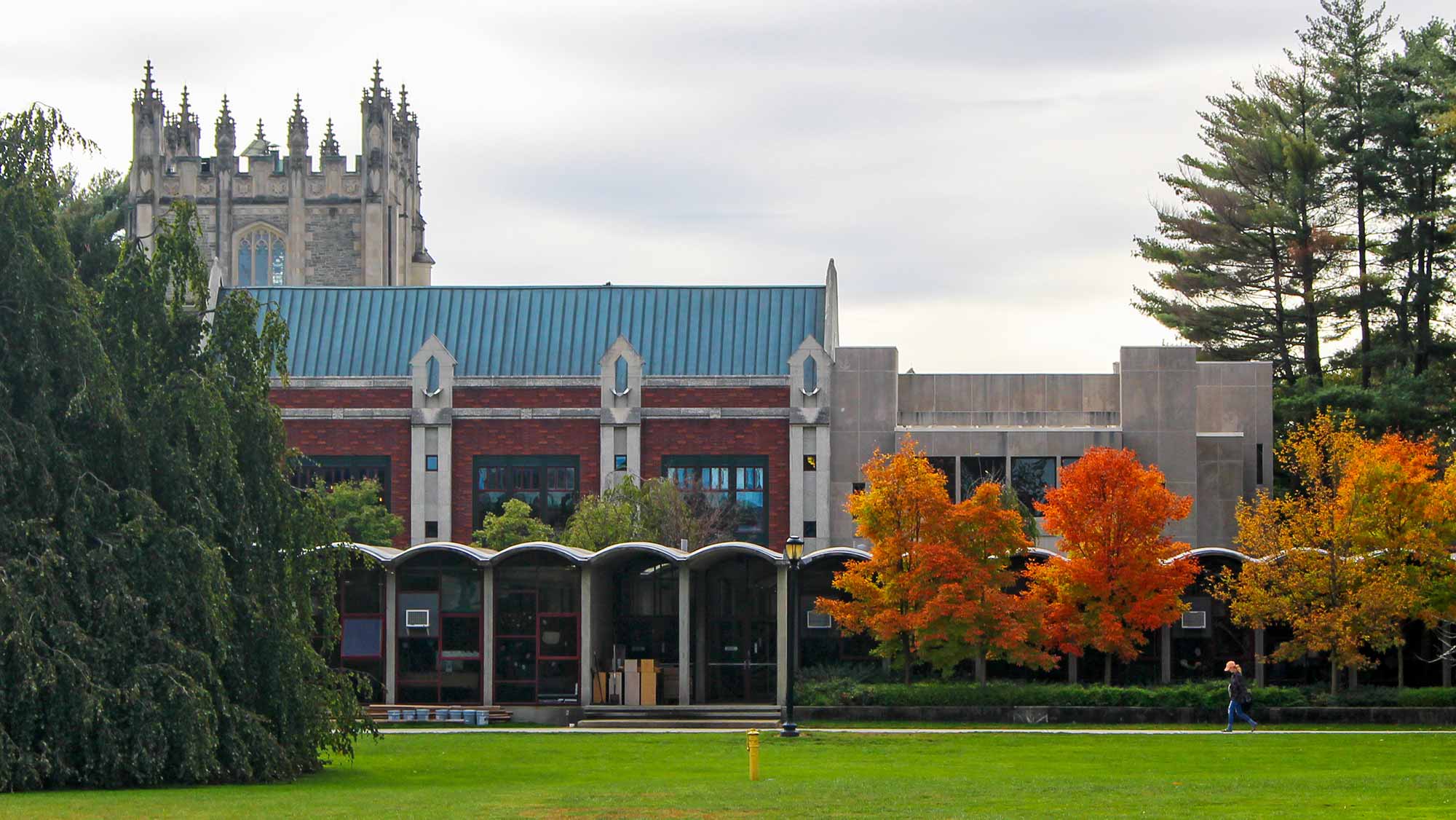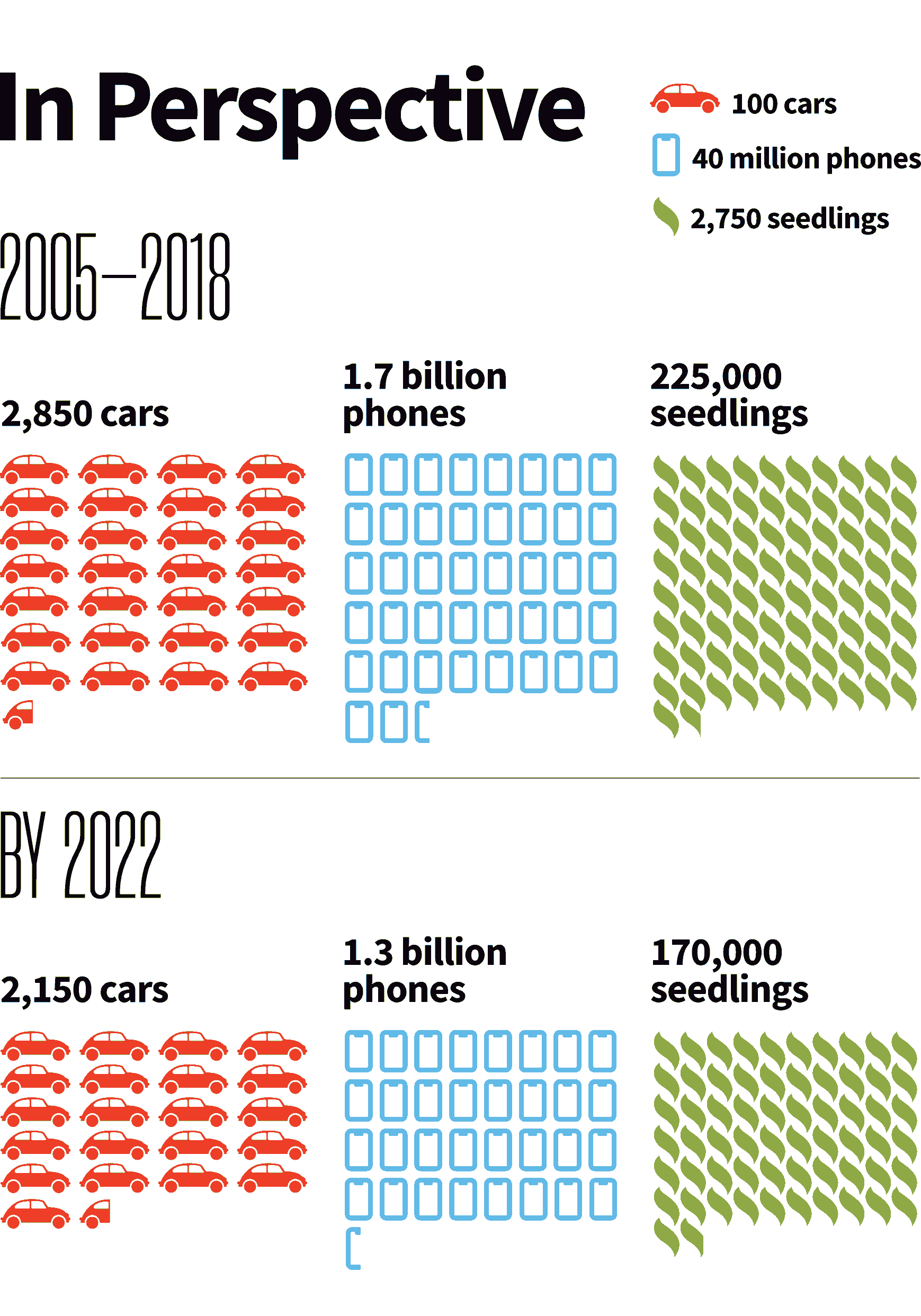Vassar Trustees Endorse $13-million Plan to Move College toward Carbon Neutrality
Vassar Trustees Endorse $13-million Plan to Move College toward Carbon Neutrality
Vassar’s Board of Trustees has agreed in principle to a decisive plan to move Vassar toward its goal of achieving carbon neutrality by the year 2030.
At a meeting on campus October 19, the board declared its support for a $13-million package of major renovations and upgrades to the college’s heating system and other energy-saving projects. The improvements will be funded through bond financing, which is expected to be approved in February.

Following the vote by the trustees, Board Chair Anthony J. Friscia called the plan the next step in Vassar’s commitment to being a leader in the effort to address climate change. “These improvements in our energy efficiency are the next logical steps in Vassar’s ongoing goal of reducing our carbon footprint and promoting climate sustainability through a range of campus activities and initiatives,” Friscia said.
Vassar President Elizabeth Bradley said the trustees’ endorsement of the plans to reach carbon neutrality by 2030 through multiple energy-saving projects reflected the college’s deep commitment to sustainability, which first began with its Climate Action Plan of 2005. “I am thankful to the faculty, students, administrators and alumnae/i who have worked diligently to get us to this place,” Bradley said, “and I feel optimistic that we have a feasible plan to fulfill our aspirations.”
The projects are expected to reduce the college’s annual carbon emissions from its current level of 17,050 metric tons to less than 7,000 by 2022. Vassar Sustainability Director Micah Kenfield called the initiative a crucial step toward the college’s goal of achieving carbon neutrality by its target year of 2030. “Sustainability often means choosing between the environment and the bottom line,” Kenfield said. “Fortunately, this suite of projects would not only drastically shrink Vassar’s carbon footprint, but also save the college roughly $900,000 annually through energy conservation and asset renewal.”

From 2005–2018 Vassar reduced emissions equivalent to:
- taking 2,850 cars off the road for a year;
- saving enough energy to charge 1.7 billion phones;
- the carbon that 225,000 seedlings would remove from the atmosphere.
With its new sustainability initiatives, between 2019 and 2022 Vassar will reduce emissions equivalent to:
- taking 2,150 cars off the road for a year;
- saving enough energy to charge 1.3 billion phones;
- the carbon that 170,000 seedlings would remove from the atmosphere.
The plan includes the following components:
- $3.8 million for the completion of an ongoing program to retrofit all lighting fixtures with LED devices;
- $3.65 million to upgrade the central boiler system to enable the college to shift primarily to using renewable fuel oil;
- $1.6 million to upgrade heating systems in four to six buildings;
- $4 million to upgrade the heating and air conditioning system in Chicago Hall and other sites on campus;
- Expansion of educational efforts on campus about awareness of common-sense energy-saving practices that would further reduce Vassar’s carbon footprint.
Kenfield said the College is also committed to purchasing electricity generated by fully renewable sources by 2022. And he said that financial incentives provided by vendors and the New York State Energy Research and Development Authority have the potential to reduce the total cost of the project by as much as $2.6 million. “Our intended approach to the next three years of projects will equip Vassar to take on further energy efficiency and de-carbonization efforts,” Kenfield said. “We have a strong foundation to build toward larger goals such as electrification of campus infrastructure and discontinuing our use of combustion-based heating altogether.”